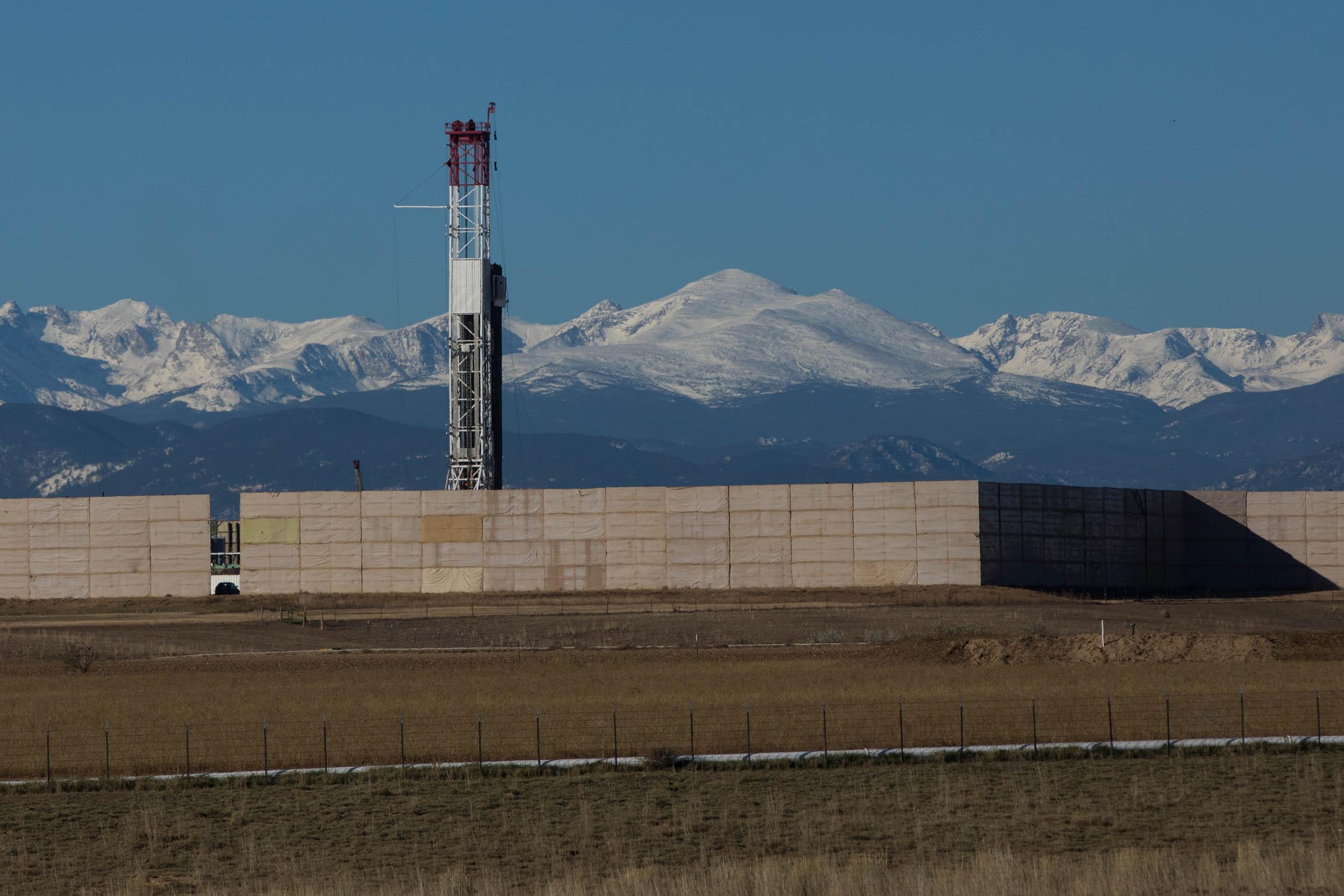
For Eastern Plains Rep. Ken Buck, the question of how to weather the Russian oil ban is pretty simple and straightforward.
“As a national security issue, we have to produce more oil,” the Republican said.
Buck voted for the ban in the House, as did almost every other lawmaker from the state.
While members of Colorado’s congressional delegation on both sides of the aisle have been quick to rally around the idea of banning Russian energy imports after the country’s invasion of Ukraine, the challenge of making up the difference remains a bone of contention.
GOP Rep. Lauren Boebert was the only member of the delegation not to support the Russian oil ban bill. She offered her own version, which would ban oil imports from Russia, Iran and Venezuela, as well as open up Alaska’s ANWR for fossil fuel development and expedite pipeline approvals, among other things. Her bill is not expected to advance.

Buck agrees it’s a big mistake for the U.S. to be looking to countries like Venezuela or Iran to make up the difference. Instead, he thinks the government should do more to help ramp up domestic production.
“Our production is going down because we haven't been drilling on private lands in Colorado. Now, the federal government can help with leases on the Western Slope in Colorado, especially natural gas leases,” Buck said. He’d like to see the state’s natural gas sold to European allies.
Unlike Europe, the U.S. only gets about 3 percent of the oil it uses from Russia. But even most Democrats who want to see America make strides towards more renewable energy agree, in the short-term, the country will need more fossil fuels to make it up.
“I think that the … oil and gas companies in Colorado and in the United States can up their production,” said Democratic Sen. John Hickenlooper.
Republicans and industry advocates, however, argue that federal policy is standing in the way of companies doing that.
Kathleen Sgamma, president of the Western Energy Alliance, has been critical of the Biden administration’s oil and natural gas policy, even going to court to fight it. She and others criticize the administration for issuing a temporary moratorium on lease sales on public lands and, they claim, holding up permitting. It’s a claim the Biden administration continues to dispute. Either way, she notes that domestic production is down about 1.2 million barrels of oil a day from the previous high.
If more wells are drilled, Sgamma argues, the benefits would not just be to energy consumers; “It's jobs and tax revenue to the state of Colorado,” she summed up.
She thinks production can start fairly quickly. “Not tomorrow. A well takes a few days to drill, a few days to complete.”
Well drilling typically takes a few months, but companies face a long process before that can happen, as they line up the necessary permits and equipment.“It is not as simple as turning on a tap. That tap does not exist,” said Morgan Bazilian, the Director of the Payne Institute at the Colorado School of Mines.
Bazilian notes that currently there is also a shortage of workers and a shortage of sand, which is needed for fracking.
There are also market considerations. The industry went through record low prices in 2020 because of the pandemic and the price war that broke out between Saudi Arabia and Russia. It’s a stark reminder that, for all the domestic focus on production, fossil fuels are a global commodity with prices often shaped by issues beyond America’s control.
Bazilian added the industry also faces pressure from Wall Street “for more financial discipline and better revenues. So, the industry is not currently in a position to make a radical change in supply.”
But many argue there are still steps the federal or state government could take to help increase production.
Democratic Rep. Ed Perlmutter believes that there should be more permitting at the federal and state level, “which the Biden administration has been doing. In fact, we're almost at record levels of production in the country today.”
Sanjai Bhagat, a professor of finance at the Leeds School of Business at the University of Colorado, adds the government could lift some regulations on oil and gas, even as it looks to renewable or cleaner forms of energy.
“I think if the regulation with regard to oil and natural gas exploration were lifted, U.S. energy companies have shown to the world that they can be very, very resourceful in getting oil from the ground up,” he said. “But if they're hampered with one regulation after another, then at some point it is not economically worthwhile for them to make the effort to get the oil out.”
Political rhetoric doesn't always match on-the-ground reality
For all the political talk of unleashing American energy, or reaching energy independence, or fighting for energy dominance, there are limits to what the government can actually do.
“The U.S. government does not run the U.S. oil and gas sector — that is run by thousands of different companies, and they're not a homogenous group,” Bazilian explained.
Even during the brief times when the U.S has exported more energy than it’s used, the country has still had to import some fossil fuels to meet the requirements of U.S. refineries. For Bazilian, any talk of using the current situation to push for energy independence is nonsense.
“It's the wrong goal. It doesn't make any sense in a deeply interconnected world and a world that's getting more interconnected. And it's used almost exclusively as a political slogan,” he said. For him, it makes more sense to think about the issue in terms of energy security.
Bazilian does think there is one simple step the Biden administration could take to ratchet down the rhetoric: hold a summit with U.S. oil and natural gas CEOs. “At least talk [and] listen to what they want versus what the White House wants, hear about some options for, possibly, making effective change,” he said.
But one thing is certain, energy prices are a top-tier issue for voters. And if prices remain high, Biden will get the blame, even as Democrats argue that isn’t fair.
“This isn't something that's a result of Republicans or Democrats. This is something that's a result of the invasion of Ukraine by [Russian President] Putin,” Hickenlooper said.

The politicization of the situation frustrates Perlmutter.
“Republicans are going to try to have their cake and eat it too,” Perlmutter said. “They don't want to acknowledge either Ukraine or COVID as part of this. And just hope that by shouting from the rooftop, ‘oh, you're causing problems’ that people believe that.”
Even on an issue like the Russian oil ban, which has strong bipartisan support, he expects Republicans will continue to attack President Biden. While on the other side, Republicans argue Democrats are trying to use the ban as a smokescreen for ways in which their policies may have contributed to the rise in gas prices.
Related stories
- Colorado companies are pulling out of Russia as sanctions and the invasion of Ukraine deepen
- Federal spending deal includes $170 million for Colorado communities
- New rules could mean more industry money to plug aging oil and gas wells in Colorado, regulators say








